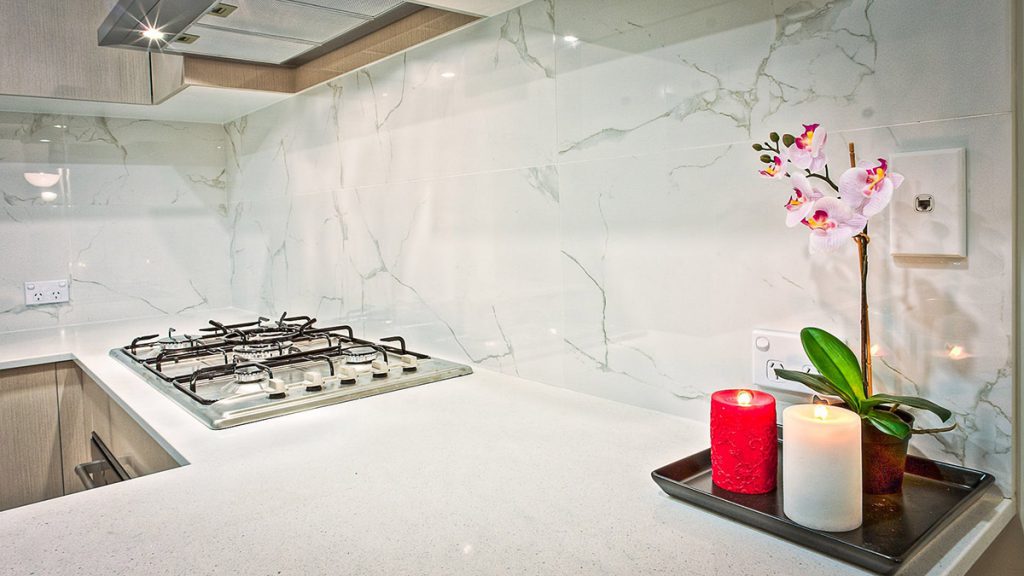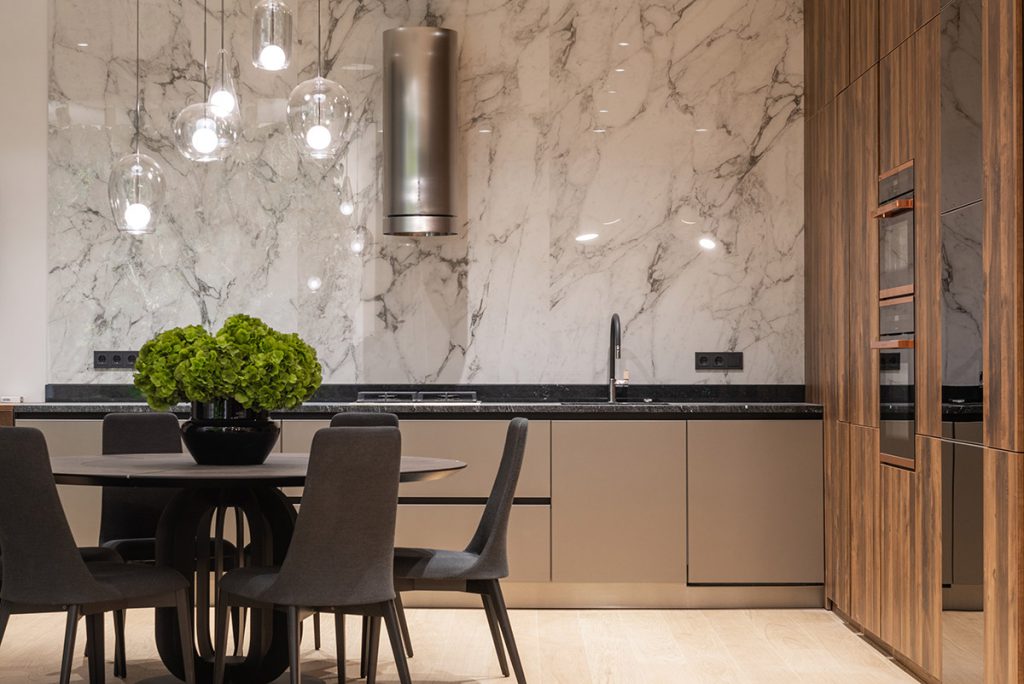Let’s delve into the pros and cons of quartz countertops, shedding light on the benefits and potential drawbacks of this widely chosen kitchen surface.

Pros of Quartz Countertops
1. Low Maintenance:
Quartz countertops are non-porous, which means they are highly resistant to stains and do not require regular sealing. This low-maintenance quality makes them an attractive option for busy households.
2. Durability:
Quartz is renowned for its durability. It’s resistant to scratches and impact, making it an ideal choice for high-traffic areas like kitchens.
3. Variety of Colors and Patterns:
Quartz countertops offer a wide array of colors and patterns, allowing homeowners to find the perfect match for their design preferences. The versatility of quartz makes it easy to integrate into various kitchen styles.
4. Uniform Appearance:
Unlike natural stone options, quartz has a consistent and uniform appearance. This can be appealing for those who prefer a more controlled and predictable aesthetic.
5. Hygienic Surface:
The non-porous nature of quartz also makes it resistant to bacteria and viruses. This feature contributes to a more hygienic kitchen environment.
6. Environmentally Friendly:
Many quartz countertops are made from abundant and sustainable materials. Opting for quartz can align with eco-conscious choices for your home.

Cons of Quartz Countertops
1. Not Heat Resistant:
While quartz is durable, it is not as heat-resistant as some other materials. Placing hot pots directly on the surface can cause damage, requiring the use of trivets or hot pads.
2. Price:
Quartz countertops can be relatively expensive compared to other materials. The upfront cost may be a consideration for those on a tight budget.
3. Limited Repair Options:
In the event of damage, repairing quartz countertops can be challenging. Unlike some natural stones that can be re-polished, quartz repairs may require professional assistance.
4. Not Suitable for Outdoor Use:
Quartz is not recommended for outdoor installations due to its vulnerability to UV rays. Prolonged exposure to sunlight can lead to discoloration over time.
5. Seams are Visible:
Larger countertop spaces may require seams, and the seams on quartz countertops may be more visible compared to materials like granite.
6. Not a Natural Stone:
For those who prefer the authenticity of natural stone, the engineered nature of quartz might be a drawback.
In considering the pros and cons of quartz countertops, it’s essential to weigh the features that align with your priorities and lifestyle. Whether you prioritize low maintenance, durability, or a specific aesthetic, quartz offers a compelling option for modern kitchens.